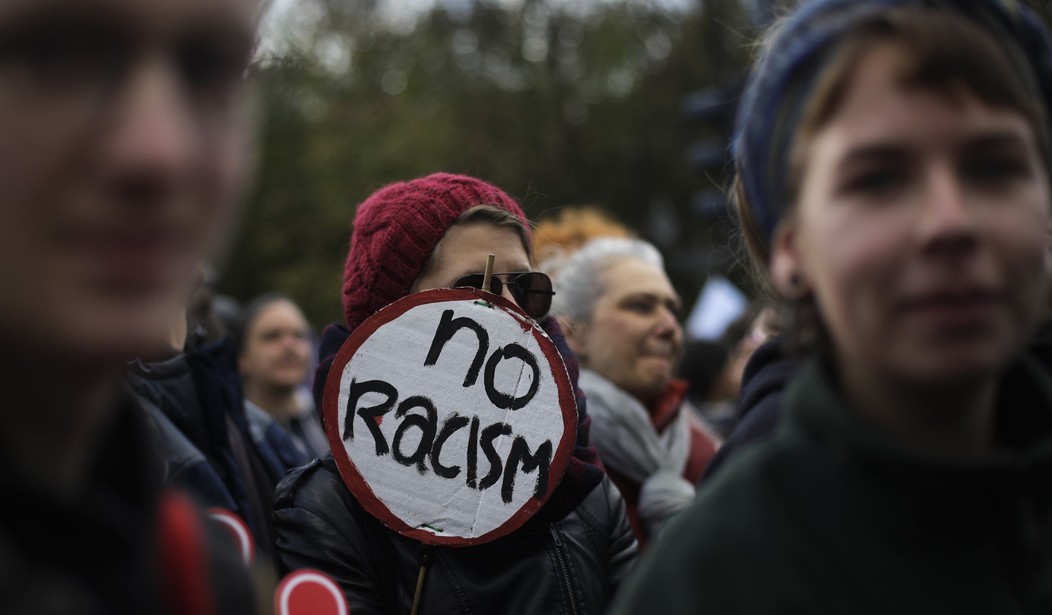Does San Francisco have a surplus of, say, five million dollars times the number of black residents? If not, some major transference of income will soon have to occur — if one committee’s direction is followed.
The San Francisco African American Reparations Advisory Committee (SFAARAC) has proposed a solution to the city’s racial inequity. It’s been poised to pummel the problem — the group was launched in 2020 under the banner of the human rights commission. According to CNN, it was assigned a very specific task: “to develop a plan that would address ‘the institutional, city-sanctioned harm that has been inflicted upon African American communities.'”
The city received a 60-page proposal from SFAARAC in late December. In June, a final report will be submitted along with the input from the San Francisco Board of Supervisors.
For now, the idea is to very generously assist select citizens:
[The proposal] includes a one-time payment of $5 million to each eligible Black resident.
Involved in the initiative: identity. And in this case, 13 is a lucky number. Details of the deal from CNN:
To be eligible for reparations, San Francisco residents must be 18 years or older, have been identifying as Black or African American on public documents for at least 10 years, and meet two of eight additional criteria, including having been born or migrating to the city between 1940 and 1996 as well as showing proof of at least 13 years of residency; Having been incarcerated “by the failed War on Drugs” or being the direct descendant of someone who was; Being a descendant of someone who was enslaved through US chattel slavery before 1865; Having been displaced between 1954 and 1973 or being a descendant of someone who did; Being part of a marginalized group who experienced lending discrimination in the city between 1937 and 1968 or in “formerly redlined” communities within the city between 1968 and 2008, according to the committee’s plan.
As for the one-time payment of $5 million, per the proposal:
[It] would compensate the affected population for the decades of harms that they have experienced and will redress the economic and opportunity losses that Black San Franciscans have endured, collectively, as the result of both intentional decisions and unintended harms perpetuated by City policy.
CNN notes a serving of supplementation:
The committee also recommended that the city supplement the income of lower-income households to match the area’s median income for at least 250 years as a way to address the racial wealth cap in San Francisco. The area’s median income was $97,000 last year, according to the draft plan.
For those curious about the fact that, pre-1865, California was never a slave state, SFAARAC offers an address:
While neither San Francisco, nor California, formally adopted the institution of chattel slavery, the values of segregation, white supremacy and systematic repression and exclusion of Black people were legally codified and enforced.
An opportunity is at hand:
The city’s government has the opportunity to take steps that redress the discriminatory actions taken to violently displace, limit political participation, invisibilize, restrict the physical and financial mobility of, and otherwise harm Black people across San Francisco. Through a tailored plan, San Francisco can redress the public policies explicitly created to subjugate Black people in San Francisco by upholding and expanding the intent and legacy of chattel slavery, whose vestiges continue to have impacts today.
Meanwhile, California at large has set its sights on leveling the pigmented playing field. From page 427 of its recommendation for reparations last June:
Black LGBTQ Americans suffer from especially poor health outcomes. Black LGBTQ people who identify as women have higher diagnoses of hypertension, stroke, and diabetes. Many Black LGBTQ Americans are at higher risk for HIV when compared with white cisgender, heterosexual Americans. As of 2015, Black transgender women had HIV at the rate of 19 percent, while 1.4 percent of the transgender population at large had HIV. Black LGBTQ Americans have also been found to have higher rates of asthma, heart attacks, and cancer.
RedState Editor-at-large Kira Davis wasn’t impressed by that effort, which she made clear in December:
This is not a sincere attempt to secure some kind of justice that was denied a group of people many years ago, as Democrats constantly claim their obsession with reparations is about. This is a social engineering project disguised as justice.
Back to San Francisco, critics might point to bigger problems the city has yet to figure out. Homelessness wouldn’t be out of the running:
Remember San Francisco’s Program to House the Homeless in Hotels? Well, Cops Just Busted a Narcotics Lab https://t.co/sBqRhtL6I0 pic.twitter.com/4knfnsrN7U
— I Hate The Media©™ 🇺🇸 (@ihatethemedia) August 7, 2020
San Francisco
Have you seen their poop map app?
Yeap, all the reported curbside droppings. pic.twitter.com/rHlGOzUL1a— Pronouns (Bite/Me) (@pronoun_impared) January 22, 2023
Stay tuned for more.
-ALEX
See more content from me:
State University Offers Exclusive Housing for Trans Students and ‘Voice Feminization’ Services
The Associated Press Says It’s ‘Dehumanizing’ to Use ‘the’ in Descriptions — Such as ‘the French’
Find all my RedState work here.
Thank you for reading! Please sound off in the Comments section below.














Join the conversation as a VIP Member